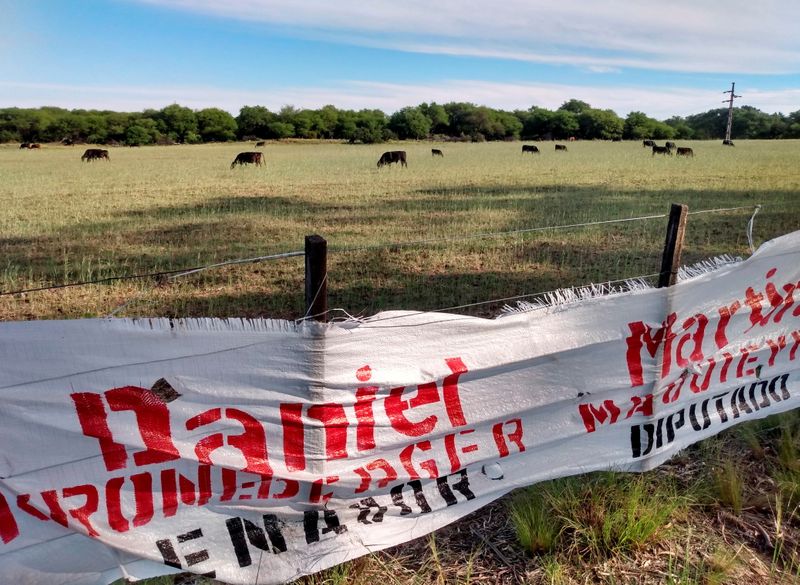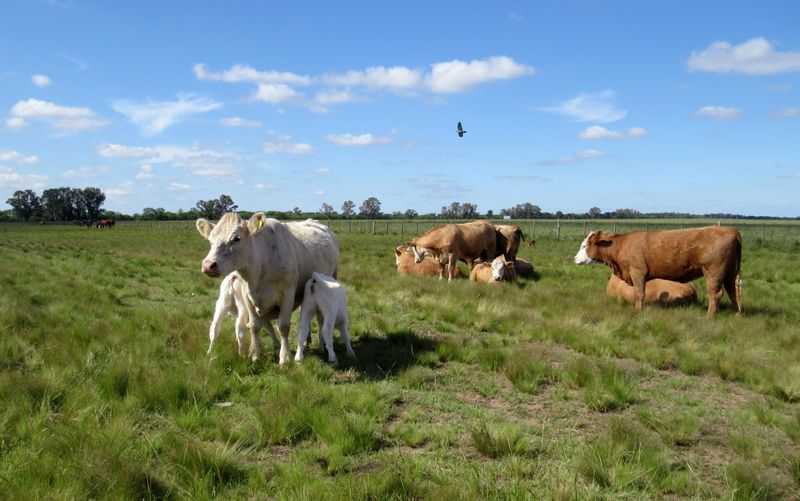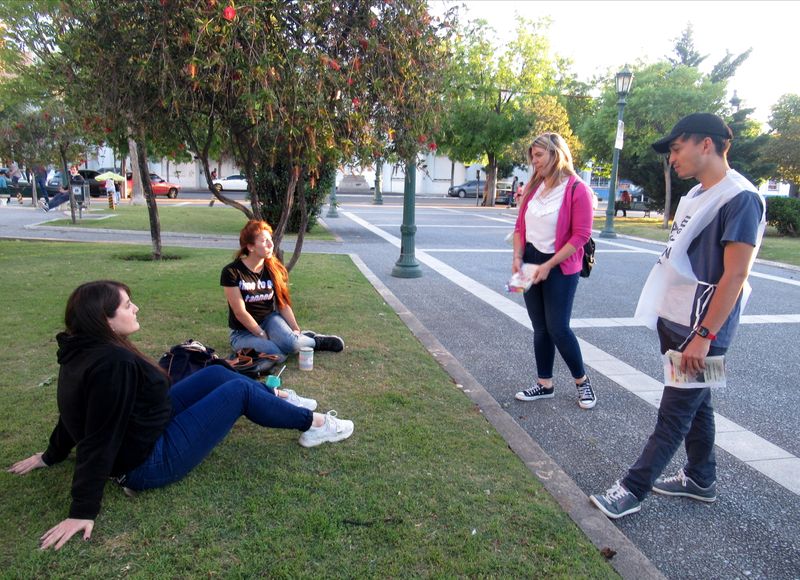SANTA ROSA, Argentina (Reuters) – Argentina’s central province of La Pampa, a vast area of grasslands home to ten times more cows than residents, usually flies under the radar of big political parties vying for votes.
The region’s windy plains dotted with cattle have, however, now become a key battleground in midterm elections taking place Sunday. La Pampa is a swing province that could tip the balance of power in Congress, impacting legal reforms and a new $45 billion deal with the International Monetary Fund.
The ruling Peronist party of center-left President Alberto Fernandez holds two Senate seats in La Pampa after a narrow win four years ago, versus one for the conservative opposition.
But La Pampa’s voters are angry over a beef export ban introduced to rein in spiraling inflation, and punished the Peronists in a September primary vote seen as a dry run of the midterms.
If the primary election result is repeated on Sunday, two seats would go to the opposition – helping potentially erase the overall Senate majority the Peronists have held since 1983, when Argentina regained democracy.
“The closure of meat exports marked a before and after in the agricultural producer’s relationship with Peronism,” said Maximiliano Aliaga, a cattle rancher and crop farmer from La Pampa.
Nationwide, the ruling party has 41 senators out of a total 72. If it loses five or more senators in the election – as opinion polls predict it might – it will no longer have a majority. In the lower Chamber of Deputies, the opposition could also close an already narrow gap on the ruling party.
“A serious loss of power in both chambers would mean more rupture within the ruling coalition,” said Juan Pablo Hedo, research director of the Management & Fit consultancy.
“It would have serious implications for Alberto Fernandez’s ability to govern in his two remaining years.”
The power balance in Congress will be key for a new deal with the IMF to defer payments Argentina cannot make after years of economic crisis. Fernandez is also pushing a shake-up of the judiciary that needs lawmakers’ support.
Regions like La Pampa, southern Chubut and farm hub Santa Fe will be the deciding factors. Each province gets three Senate positions regardless of population size.
With that in mind – and a small population to convince – the ruling party has ramped up its push in La Pampa to overturn a more than 10-point defeat in the province in the open primary.
“We are convinced that we are going to have a good result in the province of La Pampa and we are going to win,” Daniel Bensusan, Senate candidate for the ruling Frente de Todos party told Reuters.
He cited the impact of the pandemic hitting the campaign for the primary and said the party had made a push to convince voters in person. He hopes bigger turnout will swing the vote.
“We’re used to doing an on-the-ground campaign. House to house, ringing the bell, bringing people our proposals. That’s what we’re doing now,” he said.
Argentina: Senate battle https://graphics.reuters.com/ARGENTINA-ELECTION/myvmnkgebpr/chart.png
‘IRREVERSIBLE RESULT’
Along the roadways that approach the provincial capital of Santa Rosa, the challenge for the government is clear. Dozens of opposition banners hang from fences of fields dotted with cows. There are far fewer for the ruling party.
Fernandez, who swept to power in 2019, has seen his government’s popularity hit hard throughout Argentina by the economic impact of the pandemic, rampant inflation and rising poverty.
But in La Pampa, there is also a stand-off between the government and cattle ranchers over the export ban, which saw shipments to important markets like China halted earlier in the year.
Cattle farming is written into La Pampa’s DNA. There are less than 400,000 residents, but more than 3 million cattle. The export cap, though later partially eased, triggered anger in the sector which still remains.
Marcelo Rodriguez, a local farmer who chairs the Santa Rosa Agricultural Livestock Association, said the measure had hit local meat processing plants and their employees.
That opened the door to the center-right Juntos por el Cambio opposition, which is also expected to gain ground elsewhere.
“The government is desperate for the vote in La Pampa, all eyes are focused here,” Martin Maquieyra, lower house candidate for Juntos por el Cambio in La Pampa, told Reuters. “But the result of the primary is irreversible.”
(Reporting by Nicolás Misculin in Santa Rosa; Editing by Adam Jourdan and Rosalba O’Brien)



























